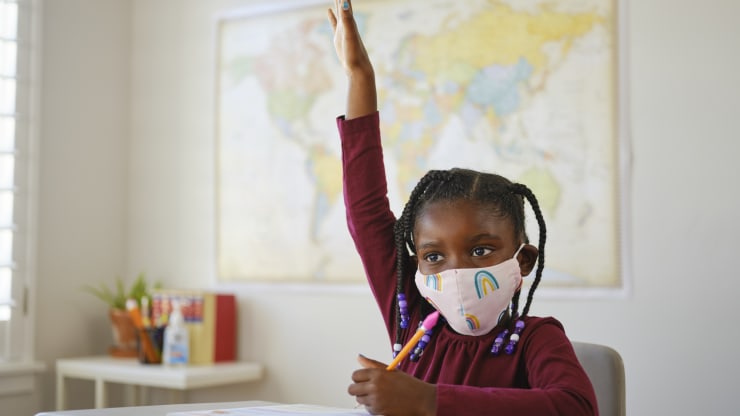The Digital Divide within Prince William County Schools
As the plan to return to public schools in November for Prince William County is being put into motion, there are several differing opinions between parents who believe they should remain virtual and those who support the 50/50 plan. For some Black students, however, returning to in-person instruction alone will not help solve a problem that has plagued the classrooms for years: implicit bias.
There has been a stigma for Black boys and girls who are often left feeling ignored by teachers, from not being called upon during class to an unconscious bias that has developed over the years. According to The Graide Network’s “Teacher Bias: The Elephant In the Classroom,” racial bias is ‘arguably and even greater problem in the American classroom.’ The article discusses how in 2014 a report showed that while Black children comprise of only 18% of preschoolers they comprise more than 48% of the children suspended more than once.
But that’s not the only area where it has impacted them. During the implementation of virtual learning, Black students have still felt the divide on an even greater level. Implicit bias is even more visible when children are exposed to long hours in front of a computer screen and their names aren’t being called. It creates a disconnection that can hurt self esteem and the ability to learn.
This is especially more so for Black students who require special teaching. One mother, who asked to remain anonymous, says that her son has felt at times isolated in the virtual learning environment. “The system is not built for all kids,” the mother told the PW Perspective. “My son is on IEP (Individualized Education Program) for behavioral and an 8-hour day is not working for him. His attention span is only good when he is working with his teacher or IEP teacher one on one.”
She continues on with the impact that the lack of being called on in class has had on him. “He doesn’t get called on as much when it’s a full Zoom setting and it frustrates him. He isn’t grasping the majority of the information and I feel as though it is too fast paced for it to be Zoom for a kindergartener. Three to four subjects a day over Zoom is a bit overload for his age.”
We spoke with a representative from Anonymous List for Change, and they released the following statement: “I think it is a challenging time for teachers, parents, and students. We all need to provide grace to each other and also help each other. With so many race relations issues, I think now is the time to really connect and get to know each other as well. Now we can truly understand the diversity of each other. The public classroom setting is where diversity is seen, engaged with, and sadly, where some students experience racism for the first time. We have to work to be more inclusive, especially during this time.”
So what is being done within the Commonwealth of Virginia to deal with implicit bias in the classroom?
Maria Burgos, Supervisor of Global Learning & Culturally Responsive Instruction at Prince William County Public Schools, talked about the need to implement mandatory training for implicit bias among the staff. ” Prince William County Public Schools have implemented systemic professional training in the area of cultural competency which includes implicit bias training in collaboration with Kirwan Institute for the Study of Race and Ethnicity. Creating a culture of inclusivity requires ongoing professional learning, accountability, and practice.”
She discussed how the Virginia Department of Education is working to develop an anti-racist policy that involves cultural proficiency training for new and current teachers. It will involve teaching critical race theory and applying it within the classroom. “Equity is holistic and engaging; it is what the culture is like in our society. We need to provide teachers a lens that makes them think “Am I using an equity-minded lens?”
For more information on learning about how the state is applying the equity plan within public schools, visit the following link.



